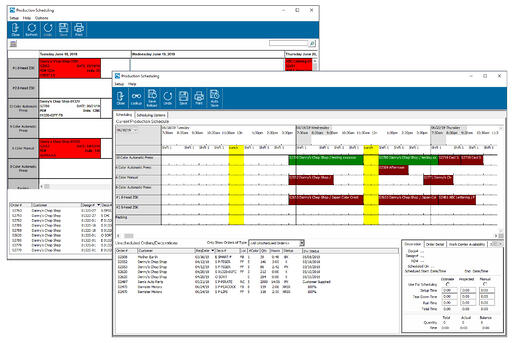 In the fast-growing and ever-changing apparel market, staying ahead of the competition is a daily reality that companies face to remain profitable. When evaluating an Enterprise Resource Planning (ERP) software solution, organizations want to ensure they make the right choice, see the solution successfully implemented, and quickly experience a return on their investment.
In the fast-growing and ever-changing apparel market, staying ahead of the competition is a daily reality that companies face to remain profitable. When evaluating an Enterprise Resource Planning (ERP) software solution, organizations want to ensure they make the right choice, see the solution successfully implemented, and quickly experience a return on their investment.
By doing due diligence in researching ERP vendors, understanding their needs, and comparing apples to apples, the odds of success can be improved and lead to a quicker ROI for businesses ready to make the change.
Vetting Vendors
The apparel industry has unique needs and specific processes, and generic business management software solutions may not be up to the task. Therefore, thoroughly vetting an ERP vendor for their industry knowledge and expertise is critical.
Finding an ERP solution that is developed by experts who have an extensive understanding of apparel industry best practices, terminology, and business processes results in solutions with features and functionality that meet the dynamic requirements of decorators. Look for vendors who actively participate in industry associations, have established good relationships with suppliers, and have fostered integrations with marketplace leaders. A vendor who’s actively involved in the industry and knows terminology, business methods, market climate, and industry requirements is able to develop the ERP software that employs best practices when implementing standard operating procedures.
Apparel-Specific Functionality
Apparel decorators will also have to choose between a generic ERP and an industry-specific ERP solution with distinct apparel decorating functionality. Any ERP system selected should have front-end to back-end functionality from beginning sales order entry through shipping of the final product; it should provide a complete business management system.
A solution that has been developed with apparel decorators in mind from the ground up offers specialized features and functionality such as artwork management, purchasing, full production scheduling, inventory management, royalty tracking, EDI, business analytics and reporting, customer portals, and shipping integrations.
 Scalability
Scalability
Scalability is the capacity to handle growth and change, specifically the exponential increase in volume, workload, and the amount of data, all while keeping pace with the trajectory of the business. Companies should have the ability to add optional modules, increase the number of users, expand to additional facilities (including globally), or increase the amount of data and information at any time or as business needs evolve.
As a prospective client, an apparel decorator should ask whether the ERP vendor is continually focusing on industry changes and staying abreast of where the industry is going. Being responsive to market changes shows their commitment to remain at the forefront of technology.
It is essential that companies utilize several selection criteria during the ERP software vetting process to avoid making a decision that could be costly to their apparel decorating business. By examining a vendor’s industry knowledge and expertise, the ERP software’s industry-specific functionality, and the scalability of the technology platform, companies will have the tools they need to make an informed choice, creating a foundation for growth and greater profitability.
Learn more about the essentials in evaluating prospective ERP software vendors.